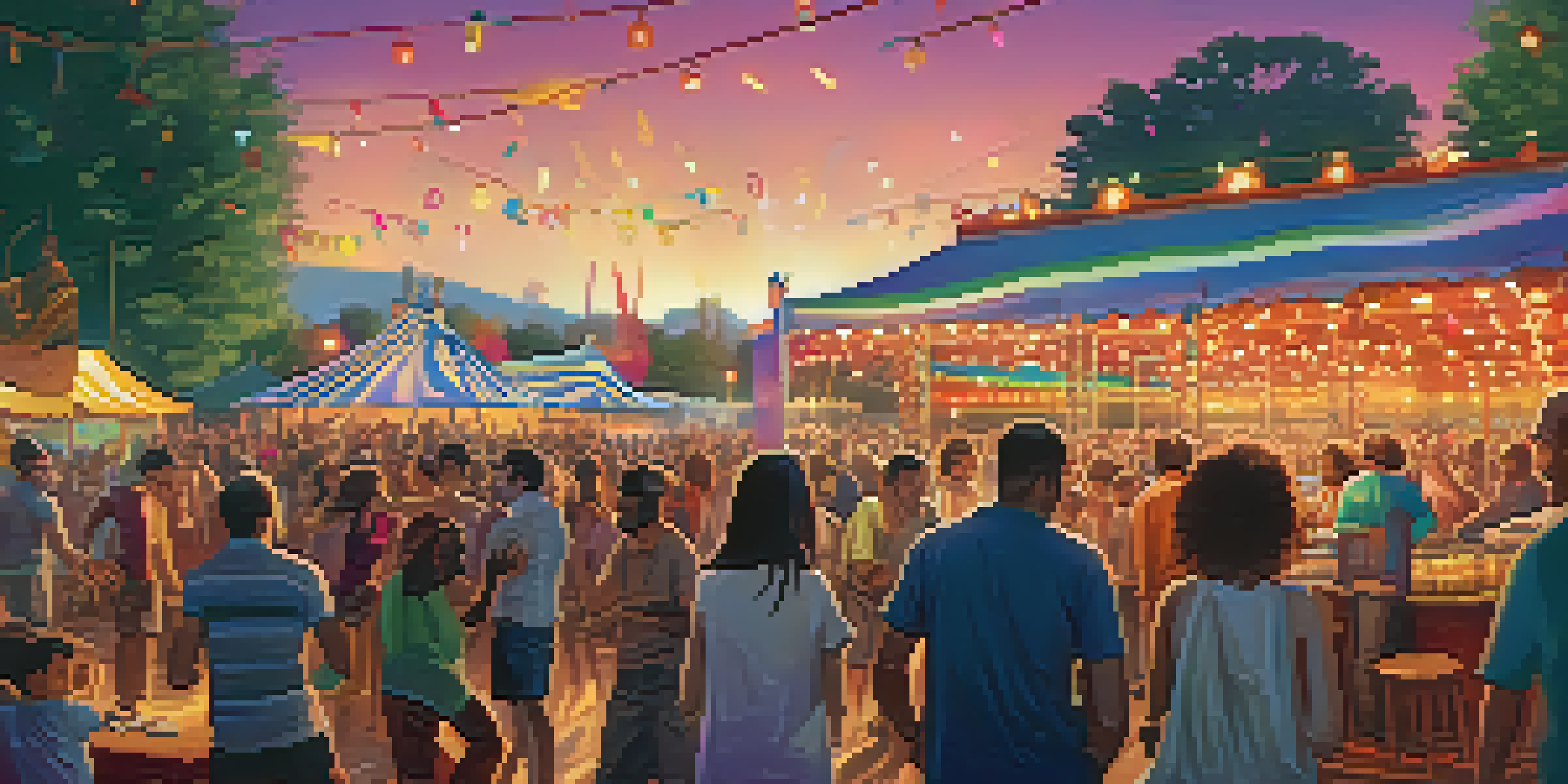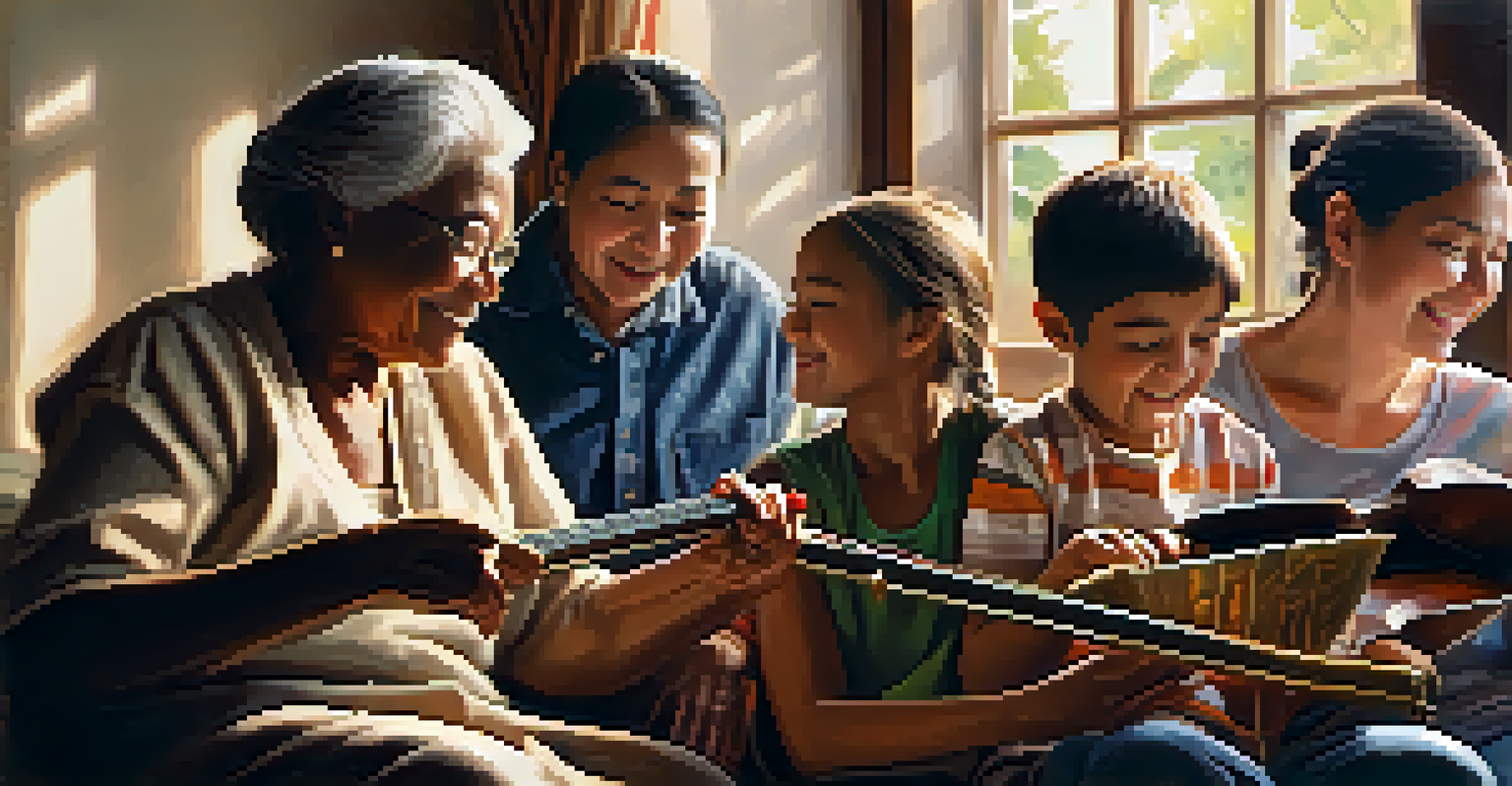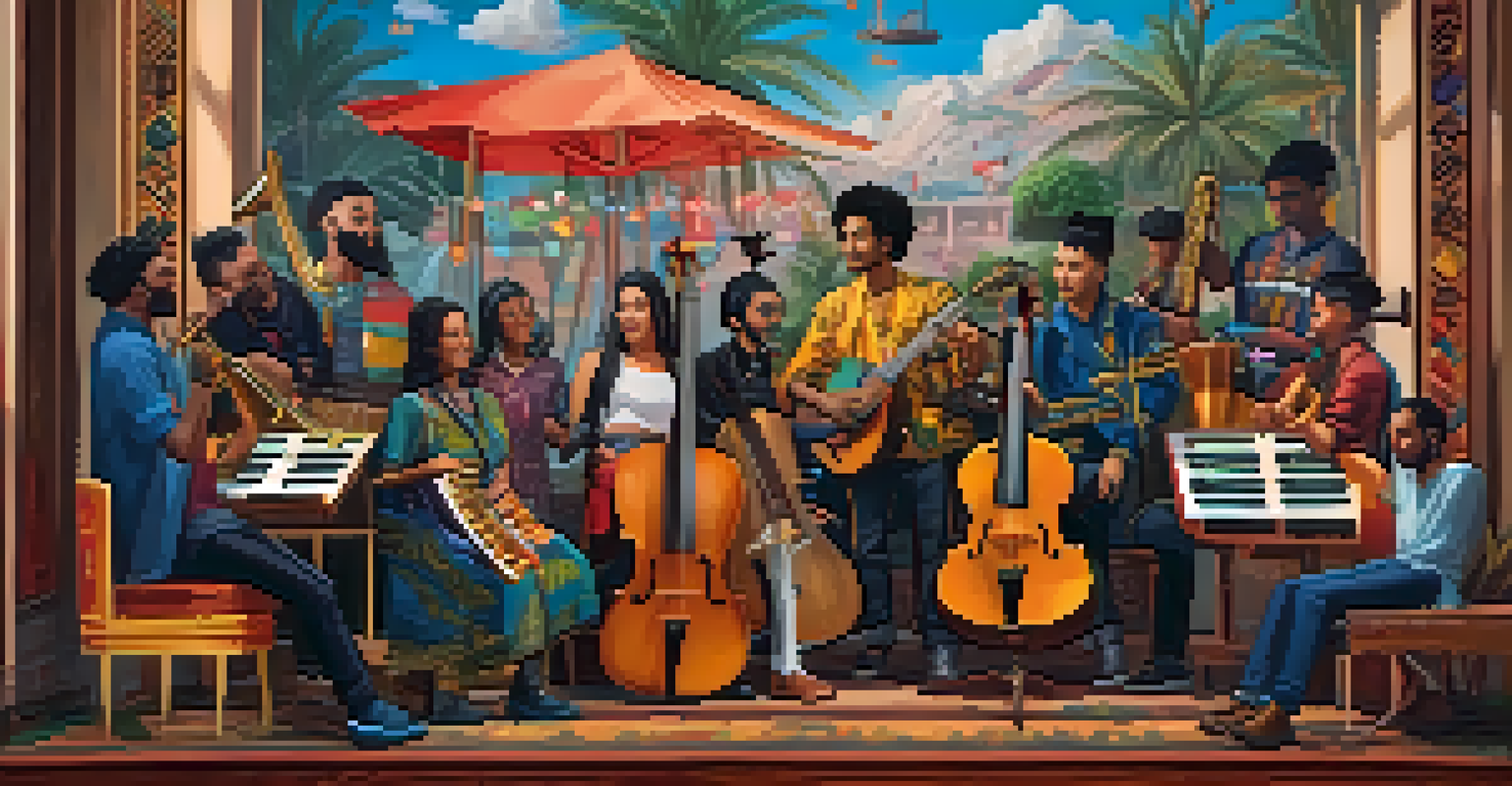Music as a Tool for Cultural Diplomacy and Exchange

Understanding Cultural Diplomacy Through Music
Cultural diplomacy refers to the practice of using culture, including music, to foster mutual understanding between nations. It’s like opening a door to deeper conversations, where shared melodies can bridge divides. Music transcends language barriers, creating a universal language that speaks to the heart.
Music can change the world because it can change people.
When countries engage in cultural diplomacy through music, they often showcase their heritage, allowing others to appreciate their traditions. For instance, a folk music festival can introduce audiences to a nation's stories and values, promoting empathy and connection. This exchange helps cultivate a sense of global community.
Ultimately, cultural diplomacy through music serves as a reminder that while our backgrounds may differ, our emotions and experiences can resonate on the same frequency. By celebrating diversity through musical expression, we can foster goodwill and understanding among nations.
Historical Examples of Music in Diplomacy
Throughout history, music has played a crucial role in diplomacy. One notable example is the 'Jazz Ambassadors' program initiated by the U.S. State Department during the Cold War. Musicians like Louis Armstrong and Duke Ellington traveled abroad, using their art to showcase American culture and promote democratic values.

Similarly, in the 1970s, the collaboration between the U.S. and China through music helped ease tensions between the two nations. The New York Philharmonic's visit to China featured classical repertoire that highlighted shared artistic values, paving the way for diplomatic relations. These instances demonstrate how music can soften political barriers.
Music Fosters Global Understanding
Cultural diplomacy through music bridges divides and promotes empathy among nations.
These historical examples illustrate that music is not just entertainment; it can be a strategic tool for fostering international goodwill. By leveraging musical talent, nations can create connections that might otherwise remain elusive.
The Role of Music Festivals in Cultural Exchange
Music festivals are vibrant platforms for cultural exchange, bringing together artists and audiences from various backgrounds. Events like Glastonbury in the UK or Coachella in the U.S. attract diverse performers, allowing them to share their cultural narratives through music. This convergence creates a rich tapestry of global sounds and stories.
The power of music makes all the difference. It can bring people together, regardless of their background.
Moreover, festivals often include workshops and panels that promote discussion on cultural issues, encouraging attendees to engage with different perspectives. For example, the WOMAD festival focuses on world music and arts, helping audiences appreciate global diversity in a meaningful way. These interactions foster a sense of inclusivity and understanding.
In essence, music festivals are more than just concerts; they are cultural melting pots. They provide opportunities for collaboration and connection that can transcend geographic and political boundaries.
The Impact of Technology on Musical Diplomacy
In today’s digital age, technology has transformed how music is shared and experienced, amplifying its role in cultural diplomacy. Platforms like Spotify and YouTube allow artists from different countries to reach global audiences instantly. This democratization of music enables cross-cultural collaborations that were once limited by geography.
Social media also plays a vital role in promoting cultural exchange through music. Artists can engage with fans worldwide, share their stories, and even collaborate with musicians from different backgrounds. For instance, online collaborations during the pandemic have led to unique musical projects that blend diverse influences.
Festivals Enhance Cultural Exchange
Music festivals serve as vibrant platforms for artists and audiences to share diverse cultural narratives.
As technology continues to evolve, so does the potential for music to act as a catalyst for cultural diplomacy. By leveraging these tools, we can foster a greater appreciation for global diversity and promote understanding among cultures.
Music as a Bridge Between Generations
Music has the unique ability to connect generations, often serving as a bridge that links the past with the present. For instance, classic songs from the ’60s and ’70s are often reinterpreted by younger artists, introducing timeless themes to new audiences. This intergenerational dialogue fosters shared experiences and memories.
Moreover, cultural exchange through music allows older generations to share their musical heritage with younger ones, creating a sense of continuity. Family gatherings where traditional songs are passed down become not just moments of nostalgia but also active acts of cultural preservation. Such experiences deepen familial bonds and promote cultural identity.
Ultimately, music is more than just a collection of sounds; it is a vehicle for storytelling that transcends time. By embracing both old and new musical influences, we can cultivate a richer understanding of our shared human experience.
Challenges in Musical Cultural Diplomacy
While music presents many opportunities for cultural diplomacy, it also faces challenges. One significant issue is the risk of cultural appropriation, where elements of a culture are used without understanding or respect. This can lead to tension and resentment, undermining the very goals of cultural exchange.
Additionally, political restrictions can limit artists' ability to perform and share their music internationally. In some regions, censorship can stifle creativity and prevent musicians from expressing their cultural identities. These barriers highlight the need for sensitivity and respect in musical diplomacy.
Technology Amplifies Musical Impact
Digital platforms enable global music sharing and cross-cultural collaborations, enhancing cultural diplomacy.
Addressing these challenges requires a commitment to ethical practices in cultural exchange. By fostering respectful collaborations and honoring the origins of musical traditions, we can ensure that music remains a genuine tool for diplomacy and understanding.
The Future of Music in Cultural Diplomacy
Looking ahead, the role of music in cultural diplomacy is likely to expand as globalization continues to shape our world. With increasing interconnectedness, we’ll see more collaborations that blend various musical traditions, creating new genres and expressions. This evolution can foster a deeper appreciation for diversity and shared human experiences.
Moreover, as awareness of global issues grows, music may become an even more powerful tool for advocacy and activism. Artists can use their platforms to address social justice issues, environmental concerns, and cultural preservation, inspiring audiences to engage with these vital topics. Music, in this sense, becomes a rallying cry for change.

In conclusion, the future of music as a tool for cultural diplomacy holds great promise. By embracing innovation, respecting traditions, and fostering collaborations, we can harness music’s power to unite and inspire across cultures.